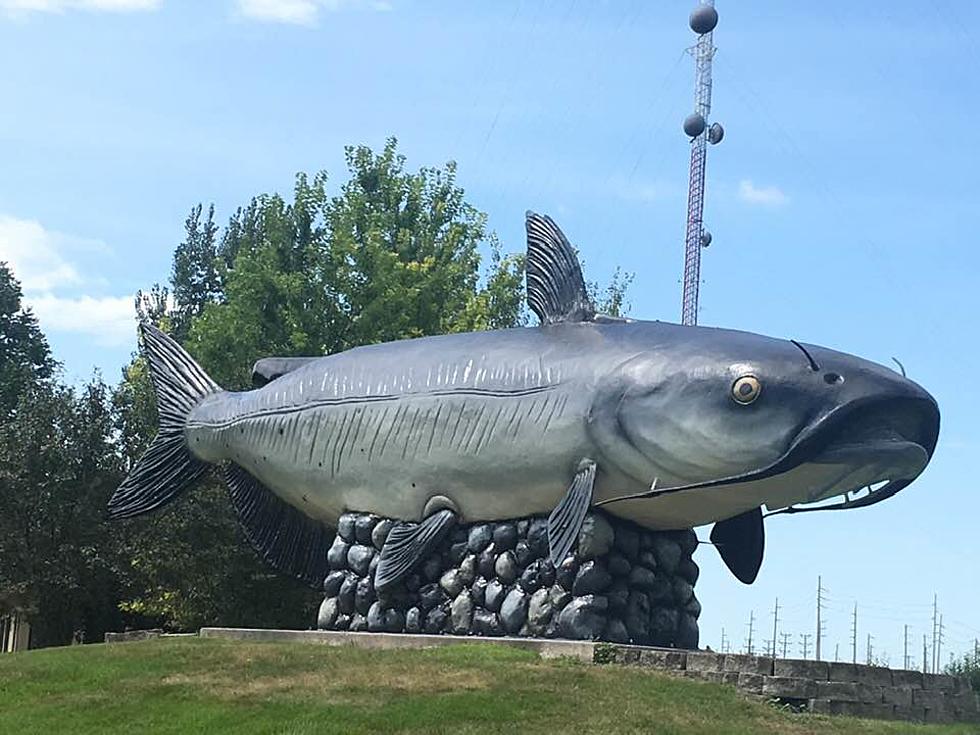
Zebra Mussels In North Dakota Lakes, Will It Really Be That Bad?
Okay, I know I'm going to take some heat on this, but here goes. We've been hearing about zebra mussels for a long time now. How they will destroy ecosystems, ruin beaches, clog up water intakes, compete with native species, etc. You've seen the commercials and billboards from North Dakota Game and Fish, "Clean, Drain and Inspect." Zebra mussels are a problem, but is it really all doom and gloom? More on that in a moment.
Zebra mussels have just been found in several North Dakota lakes and rivers now, and you can bet more will be added this spring and summer. They include the Red River, Lake LaMoure, Lake Ashtabula, Lake Elsie, the James River, and the Sheyenne River all in eastern North Dakota. So far western North Dakota has been spared, but you can bet zebra mussels are coming.
Humans are considered the primary transporter of zebra mussels, but there are other spreaders. According to Researchgate, waterfowl can transfer zebra mussels at the larvae stage. In the case of Twin Lakes, this is a huge migrating stop for ducks and geese. I've hunted it myself. What are we going to do about millions of migrating waterfowl each year? Not to mention other shorebirds.
I'm very familiar with zebra mussels. I have a cabin on Enemy Swim Lake, which is zebra mussel free at the time of this article. It's located about 5 miles south from Pickerel Lake in northeast South Dakota, that now is infested with zebra mussels. Fish and Game are doing their best to keep zebra's out of Enemy. They have cabin owner volunteers and interns from fish and game requiring all watercraft to be inspected before launching. Will it really make much of a difference? I admire what they're trying to do. I know I do my part to prevent it, but I sometimes think that eventually, nature will take its course.
Will zebra mussels really ruin a lake?
There's a lot of big claims and theories out there. No doubt it will affect your beach life. You will have to wear water shoes, because zebra muscles can be sharp and could cut your feet. I know I swim with my water shoes normally anyway, as I don't like creepy crawlies touching my feet in the water.
Will zebra mussels cause your lake property values to crash?
To be honest, no sign of that anywhere. Much of Minnesota's lakes are infested with zebra mussels. People are still spending millions on dollars for cabins on Minnetonka, Pelican or Detroit Lakes area lakes. Even Pickerel Lake, next to my lake has people snatching up some very expensive cabins. According to swnewsmedia, there's no link between a drop in property values and zebra muscles.
Zebra mussels will actually clear up the water they infest.
This might actually improve the fishing, depending on the lake. Species like Smallmouth Bass, Perch, Walleyes, and even panfish are known to gorge on zebra mussels. You might catch bigger fish because of this. With cleaner water means you will have more sunlight and more vegetation in the lake. Again, this is thought to improve the size of the fish. Fish will have more places to hide and grow bigger. It may make anglers have to adapt to new strategies to catch fish. In some cases it could make fishing more difficult.
As far as will it destroy the ecosystem of lakes? I'm going to come right out and say it. I think this is highly exaggerated. I'm not a biologist and don't claim to be one. Zebra mussels have been in the Great Lakes since the 1980's. The Walleyes and Smallmouth Bass have never been bigger. People are still catching fish and lakes are still alive.
Let's face it, even the highly prized Walleye is an invasive species to most lakes in our area. They're not native, but have thrived for the most part in our shallow prairie lakes. Do I want zebra mussels in our lakes? No, of course not. However, I'm being realistic. Sometimes you have to look for the good with the bad.
Top 11 Most Stunning Waterfowl in North Dakota
LOOK: Stunning animal photos from around the world
More From Hot 975









